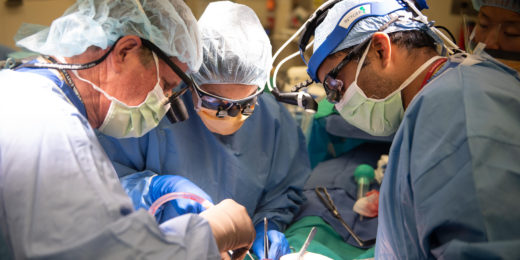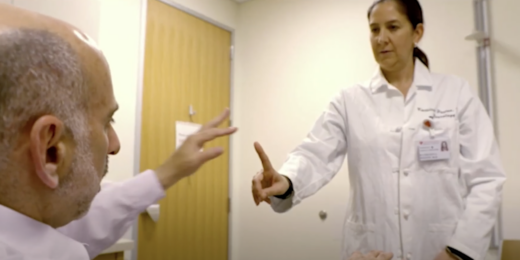I spent the first two days of my winter break thinking about what I wanted to write in this post. I'm at this pausing point, five months into rotations in my third year of medical school, and it feels like I should have something to say in the way of a summary, some idea or lesson to cap off this first chunk of clerkships. But honestly, I'm at a loss to write about any singular topic. I have too many scenes, dynamics and ideas rolling around in my head to sit down and produce one digestible post.
Instead, since this is the time of year for recaps, I thought I'd provide one of my own.
These are my clinical experiences of 2019:
At this point, I've finished my clerkships in OB/GYN, emergency medicine, ambulatory medicine, and most recently, in surgery. During ambulatory, I worked in the clinics of oncologists, cardiologists, hypertension and urgent care physicians. On surgery, I rotated through plastics, endocrine and colorectal surgery specialties.
I'm starting to get the hang of doing medical student tasks. I write notes, give presentations, call consults and suggest (tentative) care plans.
I've gotten my hands dirty to say the least. On OB/GYN, I delivered babies. In the ED, I used a big needle to draw fluid from a man's belly and sharp knives to incise and drain abscesses. On ambulatory, I listened to the lungs of a patient who proceeded to sneeze on my face. On surgery, I cut through skin and fascia, then sutured it back together. I'll spare you the nitty gritty details from my month with the colorectal service.
I've managed my time in new ways. I've worked weekends, overnights, woken up at 3:30 a.m., and crashed just minutes after getting home from a long day. I've learned to squeeze studying into the quiet minutes between seeing patients or while eating dinner at night.
I've seen a lot already. A lot of diseases. A lot of different patients -- across all ages, and from many different backgrounds. I've witnessed care plans that worked, and others that fell short. I've seen new life and dealt with a couple of difficult deaths.
I've learned more than I can put into words -- about specific diseases and illnesses, about techniques and skills, but also about communication, generosity, compassion and trust. I've worked with many different team members at all levels of training, and have gathered little lessons from each one -- I pick and choose from their mannerisms, expressions, explanations and perspectives, taking those that I want to carry forward myself.
I'll adopt one intern's foresight to sit with a "difficult" patient in the evening, answering the patient's questions. This assuaged her anxiety, while also ensuring that the team wouldn't stall in her room during 5:30 a.m. rounds the next morning when we had 20 other patients to visit.
I'll practice giving off the warmth one resident exuded when talking to patients or team members, and work to accept criticism -- even when delivered brusquely -- with the same genuine appreciation he felt.
I'll aspire to mirror one attending's sense of humor, which always put her patients at ease, and aim to deliver bad news with the unflinching and honest expression of another.
In review, it's been a lot -- and there's a whole lot more to come in 2020. But before the next wave begins, I plan to relax, rejuvenate and process the past few months.
On New Year's Eve, I'll be thinking about a woman I met on my surgery rotation. She told me her goal was to recover from her operation in time to throw confetti from the rooftops in Times Square as the ball drops. I looked into it and learned that revelers toss 3,000 pounds of confetti -- large chunks of multicolored paper -- several seconds before the ball descends. Many of them write messages on individual pieces of paper, recording their hopes and wishes for the year.
I have many hopes for the new year, and one of them is that my patient will be there, in the heart of Times Square as the clock strikes midnight, throwing handfuls of confetti over her shoulders, hugging her family and friends.
Wishing everyone a happy and healthy New Year.
Stanford Medicine Unplugged is a forum for students to chronicle their experiences in medical school. The student-penned entries appear on Scope once a week during the academic year; the entire blog series can be found in the Stanford Medicine Unplugged category.
Orly Farber is an undifferentiated third-year medical student from the East Coast. She loves reading and writing about medicine. Her written work has been featured online in STAT News and The Intima, as well as in print in The Boston Globe. In between hospital shifts, you can find Orly running The Dish or making a mess of dishes in her kitchen.
Photo by Dave Hunt






